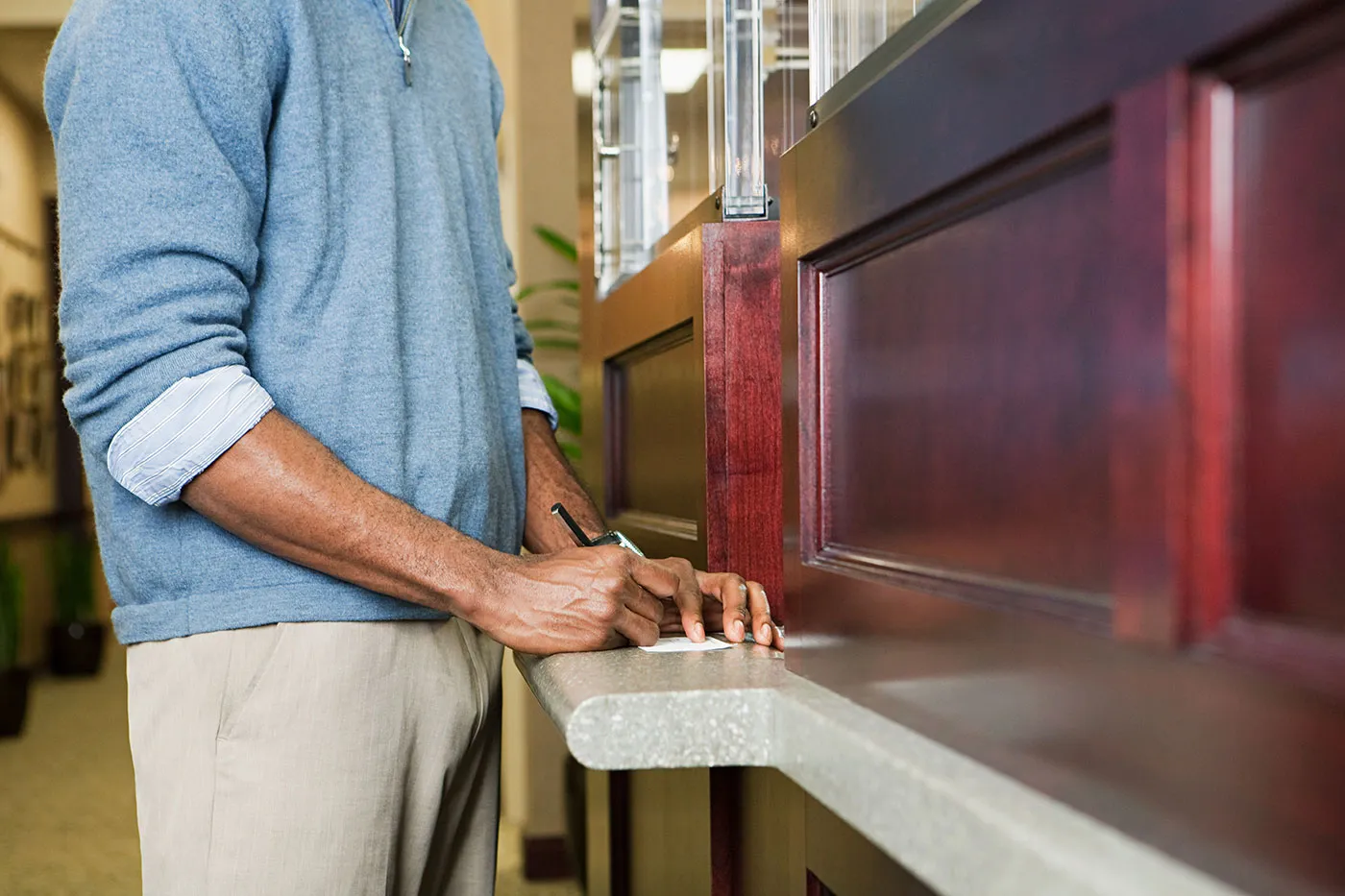Check Cashing: Are the Fees Worth It?

Cashing a check at a place other than a bank can be costly. But for the 8.4 million U.S. households that were unbanked in 2017, according to the Federal Deposit Insurance Corporation, options can be limited.
While several retailers and payday lenders offer check-cashing services, they typically charge fees. Depending on your situation, there are other options that can save you money.
Cashing a Check at the Issuing Bank
The most affordable method of cashing a check if you don't have a bank account is going to the bank that issued it. That's because, unlike third parties, the bank can immediately determine whether the funds are available to cash it.
As a result, some banks won't charge you a fee for the service. Other banks, however, may charge a flat fee or a percentage based on the check amount. So make sure you know the bank's policy before you visit a local branch.
Using a Retail or Grocery Store to Cash a Check
Many retail and grocery stores offer check-cashing services, and their fees are often more reasonable than what you might find with a payday loan store. Here are some examples of fees from some major retailers:
- Walmart: $4 for checks up to $1,000, $8 for checks that exceed $1,000.
- Kroger: Fees start at $3 with a shoppers card, but can vary by state.
- Kmart: $1 or less.
Keep in mind if you're considering cashing your check at a retailer, they typically have some limitations. Walmart, for instance, only accepts two-party personal checks up to $200. Kroger won't take personal checks at all. And while Kmart's fees are relatively low, you're limited to $2,000 with most checks.
Depositing a Check With a Prepaid Debit Card
If you can't qualify for a checking account, you may have a better chance of getting approved for a prepaid debit card. Rather than being tied to a checking account, these cards allow you to load money onto them via direct deposit, check deposits, cash reloads and more.
You can typically deposit a check onto the card through the card's mobile app. If you want the money quickly, though, some cards charge a fee. In addition to potential fees for mobile check deposits, many prepaid debit cards also charge monthly maintenance fees, transaction fees, and ATM withdrawal fees. Be sure to check the fine print before you apply for one.
Cashing a Check at Payday Loan Stores
Payday loan stores are ubiquitous, making them one of the most convenient ways to cash a check. That said, they're also usually the most expensive method. Fees are typically a percentage of your check rather than a flat rate, which means that the higher your check amount, the more you'll pay.
With Check City, for instance, fees start at 1.99% for in-state payroll and government checks. At Speedy Cash, you'll pay a minimum fee of $2 plus an additional percentage based on where you live.
For the most part, however, it can be tough to find out what you'll pay until you visit a local store. Very few payday lenders list their check-cashing fees online, and if you call, you may be told to visit a local store to find out.
As a result, it's best to avoid cashing checks at payday loan stores if you can help it.
How Can I Get a Checking Account?
Overall, the costs of cashing your checks without a bank account aren't much more economical than paying the fees on a checking account. What's more, plenty of banks and credit unions offer free checking without any requirements. So it might be time to consider opening a checking account.
Take your time in researching banks and credit unions to find the option that best works for you. Some banks have minimum balance requirements to keep the account active or to waive the monthly fee, and you may be charged a fee if you overdraw your account balance. Try to find an account with a low or no minimum balance requirement, no monthly fee, and inexpensive overdraft options.
In addition to allowing you to cash checks for free, a checking account also makes it possible to set up direct deposit, use a debit card, write your own checks and more.
If you're having trouble getting a checking account due to some issues with your ChexSystems report, many national and local financial institutions offer what's called second-chance banking. This means that they either don't run your ChexSystems report when you apply or they are willing to look past certain negative items on it.
If you don't have a checking account, it's possible to cash checks for free or at a low cost. But it's generally better to get a traditional or second-chance checking account instead. With thousands of banks and credit unions to choose from, it's possible to find an account that doesn't charge a lot of fees.
As you work to improve your financial standing with a bank account, also consider other ways you can do so, such as getting a free copy of your credit report.
Want to lower your monthly bills?
We’ll negotiate bills for you and cancel unwanted subscriptions.
Get startedAbout the author
Ben Luthi has worked in financial planning, banking and auto finance, and writes about all aspects of money. His work has appeared in Time, Success, USA Today, Credit Karma, NerdWallet, Wirecutter and more.
Read more from Ben